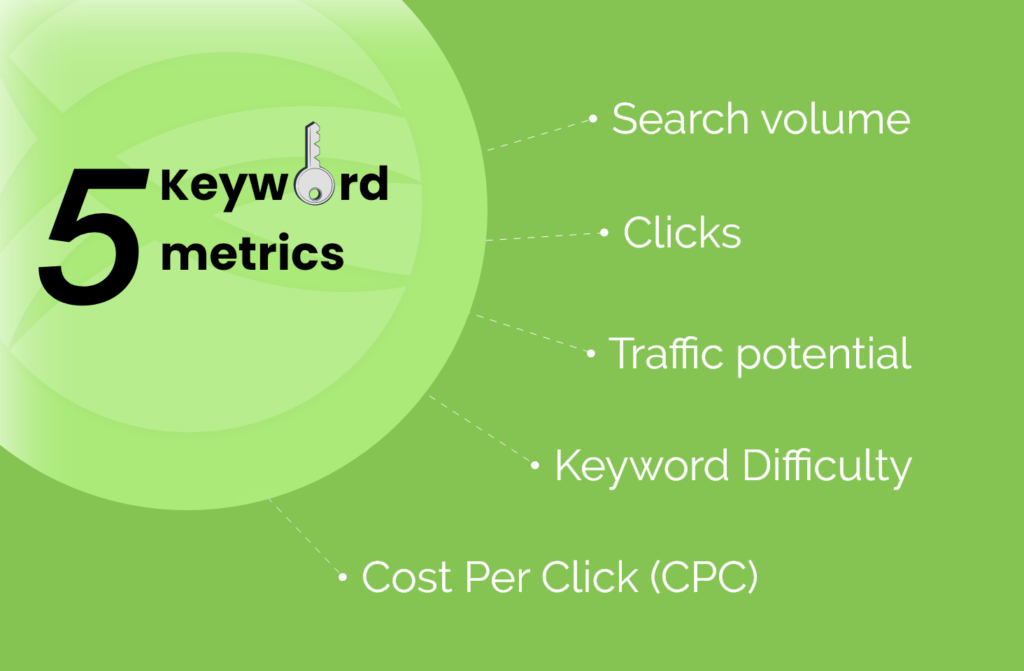What are keywords?
Keywords (sometimes know as fat head keywords) are any words or expressions that an individual search into the search engine to discover certain data on the web. The keyword leads individuals to the organic search results and at last, to the site where they discover what they’re searching for.
That is the reason tracking down the right keywords is so significant in SEO. In case no one is looking for what you’re writing on, you will not get traffic from Google—regardless of how diligently you attempt. The keywords are found through a process called keyword research.
What is Keyword Research?
Keyword research is the way of understanding the language your customers use while searching for your products, services, and content. It is the way toward finding, analyzing, comparing, and prioritizing the search terms that individuals search in search engines. Determined to use that information for a particular reason, often for search engine optimization (SEO) or marketing.
How to find keywords?
To compose convincing content that covers the necessities of individuals intrigued by your niche, you need to know what they are searching for. You can utilize keyword research tools to develop those thoughts and find considerably more keywords.

It’s a basic cycle, yet two things should be consistent:
- You need to have great information about your industry.
- You need to see how keyword research tools work.
Keyword research permits you to have a more profound comprehension of the sub-points and repeating subjects in your niche.
Suppose you have a blog about Email Marketing. You don’t need to realize that one of the keywords you need to rank for is “Email Marketing”.
The issue with these keywords is that they normally have extremely high competition.
However, if you delve further into the niche, you’ll see that individuals keen on Email Marketing may likewise use keywords like:
- Email marketing tools
- Email marketing software
- Email marketing strategy
- Email marketing templates
These are the alleged long-tail keywords. A long-tail keyword has these properties:
- Consists of at least 3 words
- Has lower search volume yet ordinarily likewise lower competition
- Is more explicit = has higher engagement and conversion rates
Your content should target addressing everyone’s questions one can have about your niche. Long-tail keywords are an incredible method to discover them.
How to analyze keywords?
Having huge loads of keyword thoughts is good. Since you have tons of keyword thoughts, your primary task is to choose the ones that will carry the most worth to you.
Each time you make new content, you must give it a focus keyword. The focus keyword is a keyword that best addresses the page and has the best properties according to the SEO perspective.
How would you know which ones are ideal? All things considered, going through them all by hand would be a close, unimaginable task.
The answer is simple: Use SEO metrics to limit things down.
The Five Keyword Metrics are:

How to use keywords?
Shockingly, there’s no tool out there that will advise you: “This is the best keyword on your rundown”.
All things being equal, you need to evaluate every keyword dependent on a modest bunch of various factors. Then, at that point, pick the keyword that is the best fit for your business.
Consider keywords as topics
Rather than getting sorted out the articles into counterfeit classifications, categorize them into topic clusters.
There are two fundamental types of content:
- Pillar content–the fundamental post or page comprehensively covering the topic–focusing on more extensive keywords
- Cluster content–supporting blog entries explaining the subtopics exhaustively–focusing on more explicit keywords
The topic clusters fortify the semantic connection between the articles. Accordingly, it can assist the search engines to be more likely to evaluate the effective significance of the posts.
Let’s look at this example:
If your blog is focused on Email Marketing, the keywords may look like this:
Focus keyword for pillar page:
- Email Marketing
Focus keywords for cluster topics:
- Email marketing tools
- Email marketing strategies
- Email marketing benefits
- Email marketing types
- Email marketing services
If you accept keywords as discrete content topics, it makes you contemplate the regular connections between them. This assists you with making content that covers the topic altogether and fulfills the reader’s requirements.
Use the focus keyword
When you choose the focus keyword for your page, use it on the page in the key components.
Try not to overuse the keyword. The best practice is to use the exact keyword in:
- The title tag
- The heading of the page (and subheadings, if possible)
- The body of the page (preferably in the first paragraph)
Attempting to embed a few keywords into your post falsely, because some tools advised you to do is an off-base method. All things being equal, write naturally and cover the topic altogether.
Keyword Tools
Here is the list of some keyword tools you can use:

